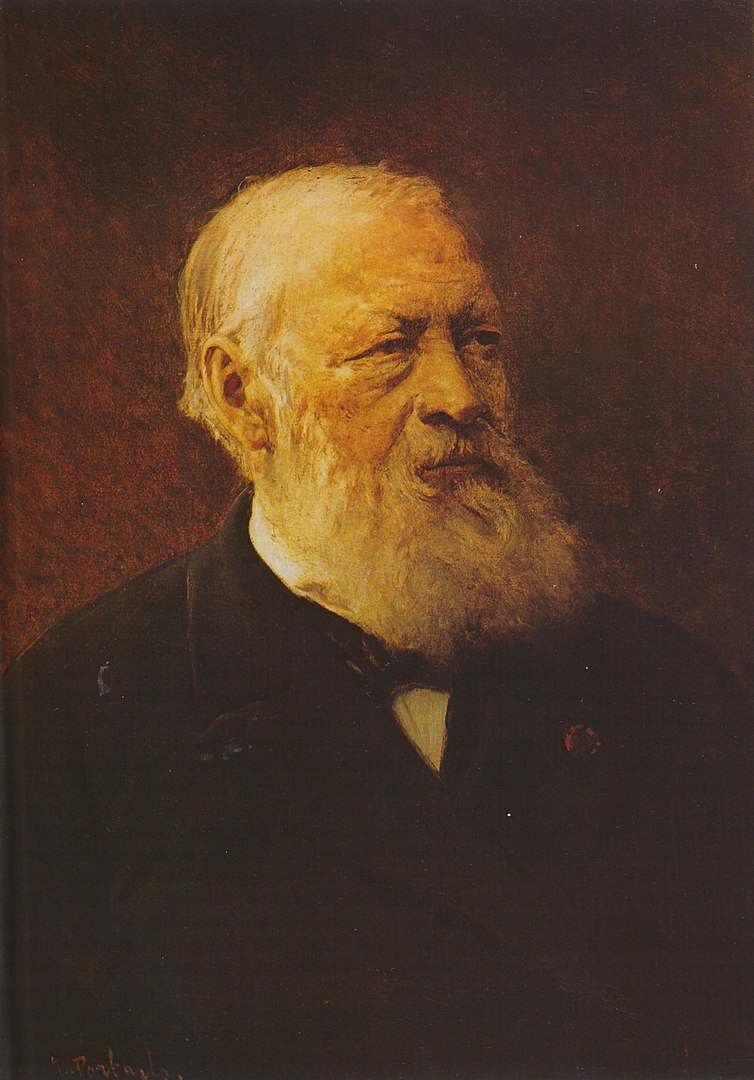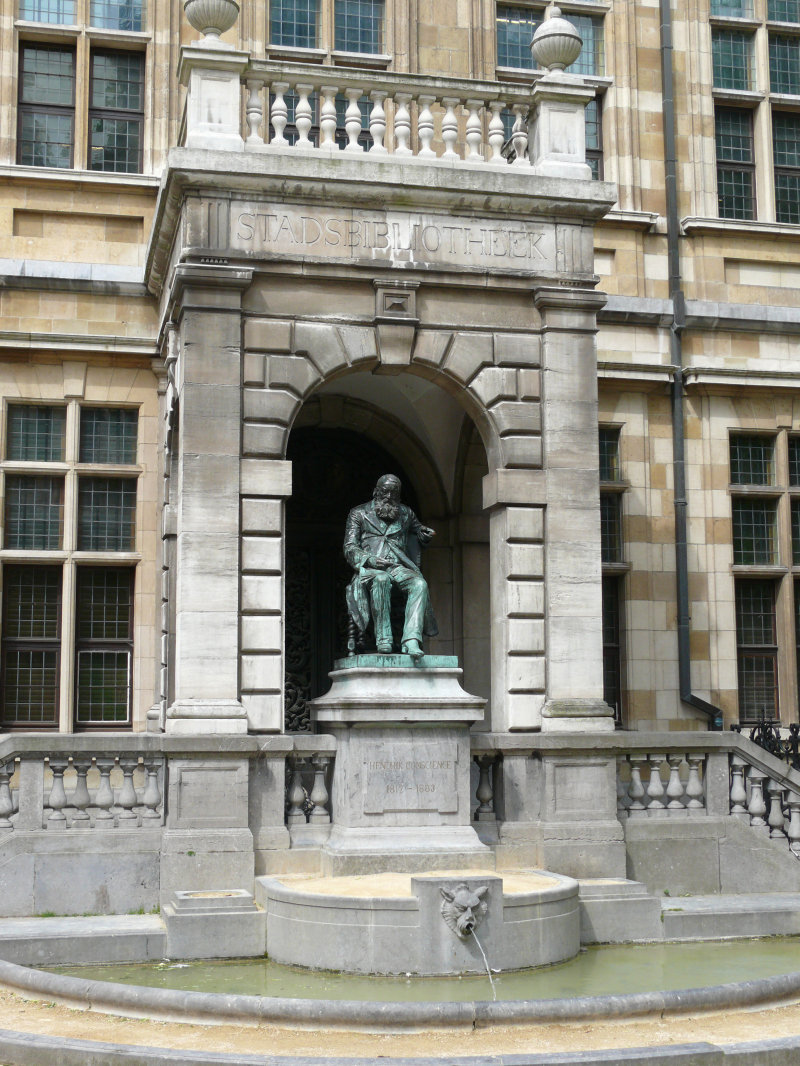Hendrik Conscience
Hendrik Conscience was a Belgian author who lived from 3 December 1812 to 10 September 1883. He is regarded as the forefather of Dutch-language literature in Flanders, working during a time when the French language dominated the upper classes in literature and governance in Belgium. Conscience fought as a Belgian revolutionary in 1830 and was a renowned Romanticist writer of the early nineteenth century. He is most known for his romantic nationalist novel The Lion of Flanders (1838), which was inspired by the triumph of a Flemish peasant militia over French knights during the Franco-Flemish War in 1302 at the Battle of the Golden Spurs.
Hendrik was the son of a Frenchman, Pierre Conscience, from Besançon, who had been chef de timonerie in Napoleon Bonaparte's navy and had been appointed under-harbourmaster at Antwerp when it became part of France in 1811. Cornelia Balieu, Hendrik's mother, was a Fleming who was illiterate. Pierre Conscience remained in Antwerp after the French left following the Congress of Vienna in 1815. He started buying and breaking up worn-out ships, which were plenty in Antwerp after the peace.
Over the course of his career, he authored over 100 books and novellas and rose to prominence. With the decline of romanticism after his death, his writings fell out of favor, yet they are still considered classics of Flemish literature. At King Leopold's request, the job of the keeper of the Royal Belgian museums was formed and assigned to him in 1867. He continued to publish novels on a regular basis, with approximately eighty books published in total. He was the most prominent citizen of Antwerp. His 70th birthday was marked by public celebrations. He died at his home in Antwerp after a protracted illness. He was given a proper burial and buried at Antwerp's Schoonselhof cemetery, where his tomb is now a memorial to the famous writer.












